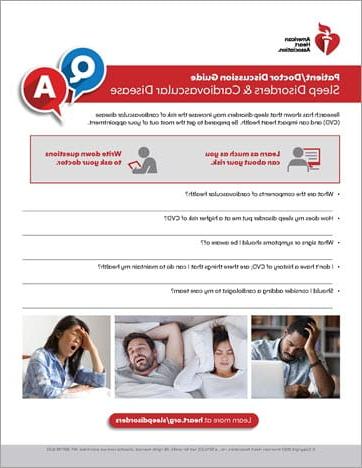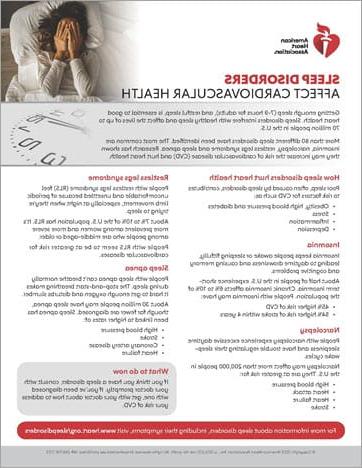嗜睡症与心脏健康

什么是嗜睡症?
嗜睡症是一种慢性病, debilitating sleep disorder characterized by excessive daytime sleepiness and an inability to regulate sleep-wake cycles normally. 如果你有嗜睡症, you may experience “sleep attacks” where you fall asleep for short periods unintentionally despite fighting the urge to sleep. These sleep attacks may happen at inappropriate or potentially dangerous times, often in the middle of daily activities like walking, 吃饭或开车. 嗜睡症无药可治, 这是一种终生的疾病, but there are medications and lifestyle adaptations to help you manage it.
嗜睡症的症状是什么?
嗜睡症的症状包括:
- 白天过度嗜睡.
- Episodes of irresistible sleepiness (called “sleep attacks).
- 难以保持清醒.
- Waking frequently throughout the night.
- 幻觉.
- Sleep paralysis (when you’re awake but can’t move).
- Sudden muscle weakness or loss of muscle control (cataplexy).
How many people are affected by narcolepsy?
估计有135人,000 to 200,000 people in the United States have narcolepsy, 但这个数字可能更高, as narcolepsy can often go undiagnosed. Narcolepsy often begins in childhood or adolescence, your risk is significantly higher if you have a family history.
How is narcolepsy diagnosed and treated?
Talk to your doctor if you think you have narcolepsy. Your doctor will ask you questions about your medical and family history and recommend further testing. Narcolepsy can be diagnosed with the help of different sleep tests as well as a spinal fluid test that checks your levels of hypocretin, a key neurotransmitter that regulates sleep and is involved with narcolepsy.
无药可治, but certain healthy sleep habits and medications can address daytime sleepiness and help you get better rest at night.
Download the Patient/Doctor Discussion Guide (PDF)
How is narcolepsy linked to cardiovascular disease and brain health?
More research is needed to fully understand the relationship between narcolepsy and cardiovascular disease, but there is compelling evidence that narcolepsy is associated with an increased risk of cardiovascular comorbidities including 高血压, 心脏病, 中风, 心脏衰竭. Because narcolepsy is rare and can be difficult to diagnose (or can be misdiagnosed), it’s been harder to study the connection between narcolepsy and cardiovascular disease.
There are key components of narcolepsy that are likely related to cardiovascular disease risk. 例如, narcolepsy causes changes in your blood pressure during the night, which may increase the risk of cardiovascular problems. Most people experience a natural dip in nocturnal blood pressure, but this doesn’t always happen when you have narcolepsy, researchers believe this could affect your heart health. There’s also evidence that deficiencies in key neurotransmitters can, 更广泛地说, lead to an increased risk of hypertension and cardiovascular disease.
People with narcolepsy also have higher rates of 糖尿病, 肥胖, depression and other sleep disorders, all of which can contribute to a greater risk of cardiovascular disease. Narcolepsy has been found to significantly drive up the risk of 中风.
Download How 睡眠障碍 Affect Cardiovascular Health Fact Sheet (PDF)







